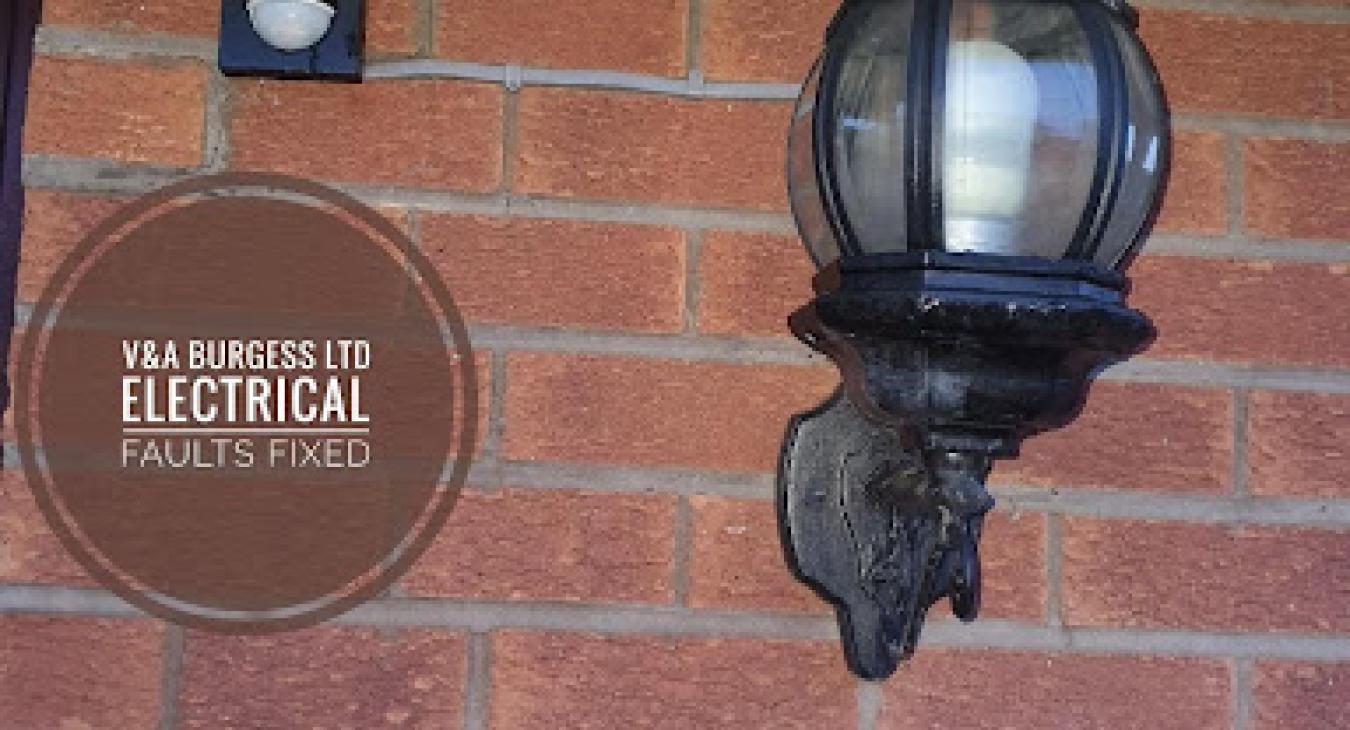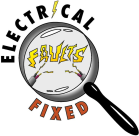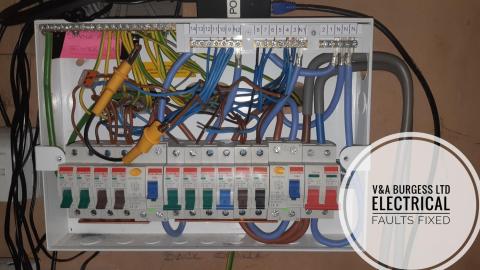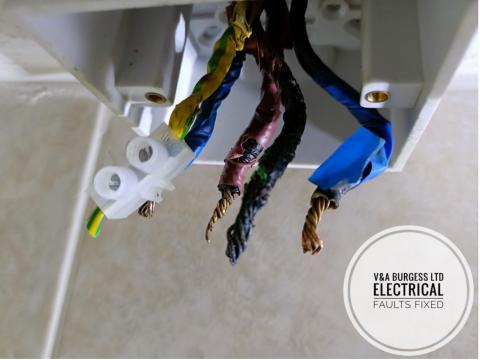
Table of Contents
- If you are having issues with lights flickering in or around the house then there could be many reasons for this💡
- Problem with a single light fitting
- Issue with wiring behind a light fitting
- Loose wiring somewhere in the property such as fuse box or light switches
- Old or deteriorated wiring
- Faulty bulbs or lamps
- Loose Bulbs or lamps
- Internally damaged circuit switches
- Poor connections in the street outside
- Low voltage incoming on the mains supply
- Heavy power-hungry appliances being used locally or in your home
- Incorrect dimmers for the type of lights, lamps, or bulbs
1) If you are having issues with lights flickering in or around the house then there could be many reasons for this💡
Some of the issues that cause lights to flicker could be a danger and you should have this investigated by an electrician is the problem persists. Some of the issues that cause lights to flicker could be:
Back to top2) Problem with a single light fitting
When there is a problem with a light fitting, it can cause lights to flicker. Internal connections on the light fitting can fail and start to cause lights flickering. A light fitting that has a Passive Infra-Red Sensor (PIR) can flicker if there is an issue with the PIR sensor. As light fittings age, the electrical contacts within can become worn, the connections can become loose and this can cause problems such as LIGHTS FLICKERING IN HOUSE.
Back to top3) Issue with wiring behind a light fitting
When light fittings are installed, there are usually several wires that are connected in varying manners behind the light fitting and out of sight. These connections are vital to ensure that not only the light fitting itself works but the rest of the lights in the property also work as they should. When these connections are made incorrectly, fail, or become loose then this can cause the issue with lights flickering.
Back to top4) Loose wiring somewhere in the property such as fuse box or light switches
When loose wiring is present in the electrical installation at a property, the lights can appear as if they are the issue, when in fact, the problem originates somewhere else. A loose incoming mains supply can cause lights to flicker along with presenting a real danger of electrical fire as loose connections easily and quickly overheat. It may not be obvious where loose connections are so it is always best to ask a professional to come and investigate for you.
Back to top5) Old or deteriorated wiring
When electrical systems are installed, they are not designed to last forever and will eventually need replacing. It is not uncommon for a wiring system to last for several decades, outlasting many other systems and equipment in the home such as boilers, heaters, and furnishings. Unfortunately, many people forget to have the electrical installation checked regularly or when purchasing their home and this can lead to issue being missed and expensive rewiring becoming necessary.
Back to top6) Faulty bulbs or lamps
Let’s not forget that there can be manufacturing defects with bulbs or lamps occasionally and this may be the cause of the lights flickering. Bulbs can also become faulty at any point during their service life and being to flicker resulting in the appearance of serious electrical issues in the home. It’s a good idea to perhaps swap the bulb out first to see if this was the issue before residing yourself to a full electrical rewire 😊
Back to top7) Loose Bulbs or lamps
If bulbs or lamps are loose in the light fitting or bulb holder then there will not be sufficient electrical contact for the bulb to work correctly. This can result in intermittent delivery of electrical current and the bulb flickering to let you know there is an issue. If the bulb will not screw in or lock in correctly to the light fitting in your home then it is possible that the light fitting itself may be damaged. It could also be the incorrect type of light bulb for the fitting so it’s worth double checking you have not purchased the incorrect type.
Back to top8) Internally damaged circuit switches
The trip switches in the fuse box or consumer unit may being to fail over time. Developing a high internal resistance and refusing to let electrical current flow properly through the electrical circuits in your home. If you hear a buzzing or humming noise from a circuit breaker switch then it may be on its way to failure. If you are at all unsure or concerned about the condition of your fuse box, consumer unit or the switches inside then have an electrician check it out for you to make sure that everything is okay.
Back to top9) Poor connections in the street outside
The mains supply that comes into our home does not simply feed our home alone. There are many properties on the same supply cable that comes from the power station. In order to supply all these different homes, it is necessary to make electrical junctions in the ground to split the supply to each of the properties. Whilst these junctions are intended to last for a long time and are no doubt carried out to a very high standard, there are occasions that may mean these connections will fail. Overloading the supply cables, such as when there is a large prolonged demand from the properties on the supply, will cause any weak spots in the network to fail. These weak spots are typically the underground junctions.
Back to top10) Low voltage incoming on the mains supply
When there are periods of low voltage, this can cause lights to dim and / or flicker. The reason for this is that the lights have been designed to operate within a certain voltage range and when the voltage dips below that range the lights will no longer function as the manufacturer intended. Voltage is a measurement of electrical force and without sufficient electrical force, it is not possible to push the electrical current through the resistance of the lights or appliances in your home.
Back to top11) Heavy power-hungry appliances being used locally or in your home
When there is large demand on the electrical supply locally or within your home, this can cause the available voltage to drop. When this happens, we can see lights dimming or flickering and other electrical items seemingly refusing to work as intended. This phenomena are more common when your property is situated far away from the electrical transformer for your area. The nearer properties tend to get the best of the electrical supply and the further you are away from the transformer the more the voltage can ‘drop’ as each home places its demands on the electricity supply network.
Back to top12) Incorrect dimmers for the type of lights, lamps, or bulbs
Certain types of light bulbs require specific dimmers. There are leading edge dimmers and trailing edge dimmers and you should check the manufacturer’s instructions for your light bulbs and dimmers to ensure compatibility. When dimmers and light bulbs do not match, flashing or flickering lights are a common occurrence.
Issues with other light switches
Let’s not forget the on / off style of rocker light switch as well. These switches along with dimmers have electrical terminals on the rear of them to accept and secure the electrical cabling to ensure the circuit functions correctly. When the wiring in these terminals becomes loose there can be intermittent or insufficient contact between the switch and the cable and as such, there can be LIGHTS FLICKERING IN HOUSE and connections can overheat.
When you are experiencing any electrical problems the important thing to remember is not to panic. If there is smoke or fire then call the emergency services in your area and ask them for help. Call an electrician to come and investigate the issues for you. DO NOT attempt to fix electrical problems yourself as serious shock and injury can occur from contact with electrical systems. There are many qualified professionals that will attend your home in an emergency to repair or investigate your issues for you.
Have you got flickering lights in your Liverpool home? Get in touch with Electrical Faults Fixed today.
Back to top










